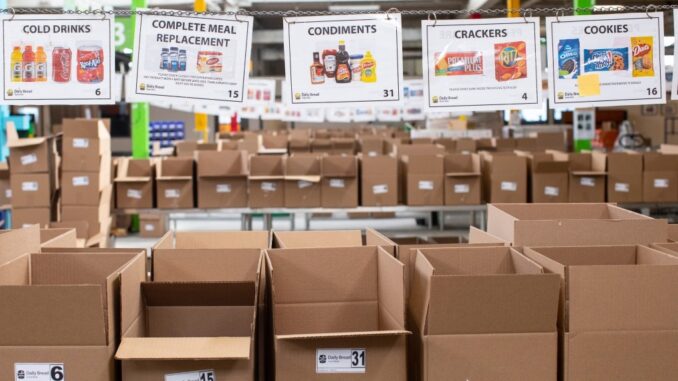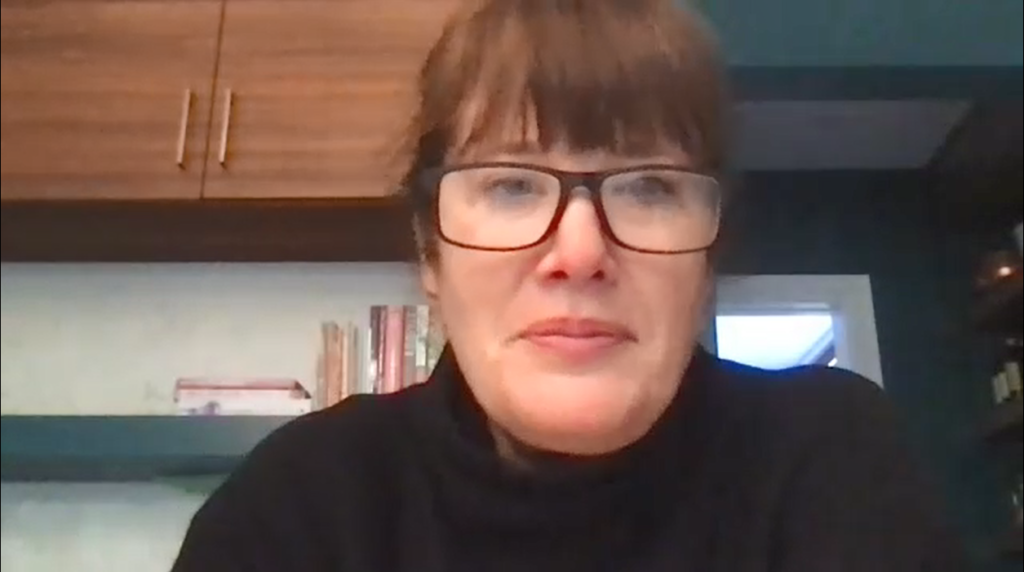
By Jay Ann Ramirez, Karen Alassaf, Alison Stewart, Diaka Toure
TORONTO – A Toronto-based organization is asking city residents to donate food on Saturday, December 4 — a move they believe will help those who are experiencing the effects of the COVID-19 pandemic.
Toronto Miracle spokesperson Jordan Mlynek said the city-wide food drive aims to unite all 140 neighborhoods in the city to raise 250,000 lbs of non-perishable food for one day.

“This year our goal is to raise 250,000 pounds of food. And that is because the pandemic economic impacts of the pandemic are worse this year than they were last year. Anybody that was living on the fringe, anybody that had precarious employment, anybody that was working part-time minimum wage, they’re finding themselves food insecure, if they weren’t already,” she said.
Mlynek said anyone can become a miracle by donating non-perishable food items, which include grains, pasta, vegetable oils, spices, breakfast cereals, flour, dried fruits, and hygiene products.
Click here to see the recommended items for donation. To donate, one must register until Dec. 2.
Toronto Miracle said anyone can still donate food on Saturday past the registration deadline.
“Bring your donation to one of our #community partner drop-off hubs,” the agency said on its Instagram post.
View this post on Instagram
Designated Locations for Donations
The Toronto Miracle said food donations can be delivered to the following drop-off locations:
- Daily Bread Food Bank at 191 New Toronto St, Toronto, M8V 2E7 (go to gate #2)
- North York Harvest Food Bank at 116 Industry St, Toronto, M6M 4L8 (go to receiving entrance at the back of building)
- Salvation Army warehouse at 150 Railside Rd, Toronto, M3A 1A3 (go to the south-east corner of the building/yard)
- Scarborough Food Security Initiative at 3595 St Clair Ave E, Unit 22, Scarborough, M1K 1L8 (go to warehouse space, enter through Unit 22)
Aside from food items, one can donate funds to help the organizations by visiting Toronto Miracle’s website.
Sarah Charlton Galle, one of the community captains this year, said donors can leave their donations on their doorsteps at 10:00 a.m. on Dec. 4. Volunteers will collect the donations and redistribute them to those who need them most.

Mlynek said they are partnering with five organizations this year. They are the Second Harvest Food Rescue, Daily Bread Food Bank, North York Harvest Food Bank, Scarborough Food Security Initiative (SFSI), and The Salvation Army.
Suman Roy of SFSI said the donations from the Toronto Miracle will greatly help the clients that they support every week. He said they currently have about 1,000 clients.

“So, the food that comes from Toronto Miracle goes into our warehouse, and then over the next three, four months, we actually ship it out what the need is in the community and the food banks so that’s how it gets us,” he said.
Fighting Food Insecurity
Community members launched Toronto Miracle in 2020 with the goal of fighting food insecurity.
Roy said a lot of people misunderstood food insecurity.
“Food insecurity is rarely tangible. When you go to post-secondary campuses, like you’re in Seneca, in a lot of post-secondary campuses, if students go to bed with ramen in their belly, they don’t think they’re food insecure. But that is a misconception. They are food insecure because having hot water and dry ramen and having it before bed is not food security. So, though it is affecting everybody’s life, it is very rarely really understood,” he said.
According to a story authored by Professor Sarah Wakefield, who is the director of the University of Toronto’s Health Studies Program, food insecurity is viewed by the 1996 World Food Summit as something that exists when a person cannot buy food despite it being available in the market.
Statistics Canada says one out of seven (14.6%) people living in Canada experienced food insecurity in May 2020.

Be the first to comment